The fascinating history of Cork’s bishops
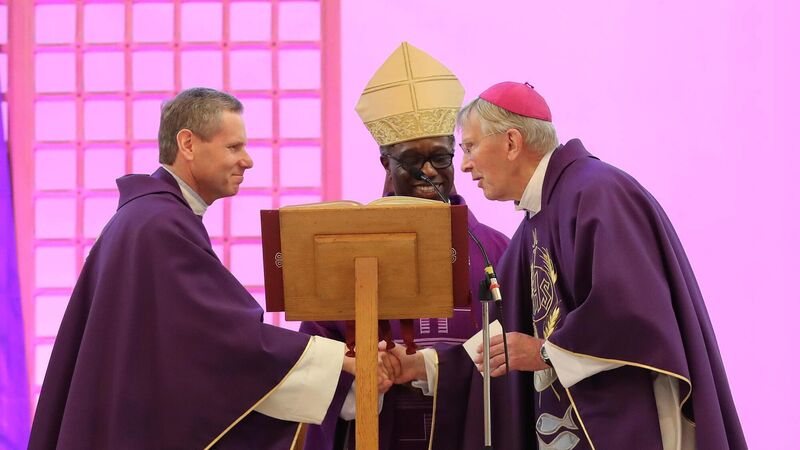
The appointment of Fintan Gavin as the new Bishop for the Diocese of Cork & Ross is notable and unusual in a number of ways.
He is the only the fifth Bishop to be appointed to the Diocese of Cork since 1916 – 103 years ago. He is also the first Bishop, since the appointment of William Delany in 1847, not to have held the position of Auxiliary or Coadjutor Bishop prior to his ordination.
As will be seen later in this account of the Bishops of Cork since 1748, he is the only Bishop, apart from Bishop Francis Moylan in 1787 to have been appointed by Rome without a considerable rumpus or the direct influence of his predecessor.
The fact that Fintan Gavin was not born in Cork makes him the first Bishop of Cork to be born outside the diocese since Bishop John Butler.
Bishop Butler was born near Fethard, Co Tipperary and was Bishop of Cork from 1763–1786.
Finally he is only the 11th bishop for the Diocese of Cork since Rome decreed that the See of Cork, Cloyne and Ross should be separated into the Diocese of Cork and the Diocese of Cloyne and Ross in 1748 (261 years ago).
As can be seen from the dates above, the appointment of a Bishop to the diocese of Cork only happens once every 25 – 30 years. This is infrequent enough to allow sufficient time for the stories behind the appointments of these Bishops and their contributions to life in Cork to fade into the background of the day-to-day workings of the Catholic Church in Cork.
The reality is different. Many of the appointments were, to say the least, controversial – especially within the Church. Whatever the controversies however, all the Bishops went on to make a significant contribution to the spiritual and secular lives of the citizens of the diocese.
Here we take a look at the individuals and outline their major spiritual and temporal contributions to the lives of the people of Cork.
Very little reference is made here to the history of Ross as a diocese, largely because the topic is significantly wide and interesting to warrant its own feature.
Suffice it to say that Ross was an independent diocese from the 12th century until 1693. The size of the diocese (11 parishes) and its consequent struggle to finance itself were a constant issue so in 1693, Ross was united with Cork and Cloyne.
In 1849 Ross became independent again until 1952 when the then Bishop of Ross, Denis Moynihan, was transferred as bishop to Kerry.
In 1958, Bishop Lucey, who had acted as administrator of Ross since Moynihan’s move in ’52, oversaw the formal unification of Ross with Cork as the Diocese of Cork & Ross.

JOHN BUTLER’S successor as Bishop of Cork upon his resignation was Francis Moylan, born in 1735, the second son of John Moylan, one of Cork’s Catholic merchant princes of the time.

WILLIAM DELANY, Parish Priest of Bandon, was the compromise candidate chosen to be bishop ahead of Fr Theobald Matthew, who was the favoured candidate but was not universally popular. A war of words broke out and Pope Pius IX intervened to appoint Delany.
THERE was a pitched battle over who would replace Bishop Delany, between Delany’s friend Dean Henry Neville and Thomas O’Callaghan, who was born in the South Parish and ordained a Dominican priest in 1863.
Delany put forward his reasons for “keeping out the Friar” (O’Callaghan) in a series of letters to the Primate of Ireland, Cardinal McCabe. Following these communications Cardinal McCabe proposed the appointment of Neville to Rome.
Archbishop Thomas Croke, for his part, also took to pen. He wrote to a friend: “It would be a national calamity if Neville were appointed. He is a desperate West Briton, a castle hack, and probably the most unpopular man in Ireland.” In a further 15-point letter marked “Strictly Private except for Propaganda (Rome)” Archbishop Croke all but eviscerated Dean Neville. “There is not in Ireland…a man so thoroughly detested as the Dean (sic); and if, … he became Bishop of Cork, I would not answer for the consequences,” Croke wrote. The arguments championed by Archbishop Croke swung the decision in favour of Dr O’Callaghan. He was installed as Bishop of Cork on December 3, 1886.
O’Callaghan continued the process of church building, including Glanmire, Blackpool (replaced in 1945) and the Gougane Barra oratory.

Daniel Coholan was the son of a small farmer from Kilmichael and the early years of his bishopric covered the War of Independence and the Civil War. It is for his actions during this period (1918-1923) that he is chiefly remembered: He was the only bishop in Ireland to threaten and enforce excommunication, on all sides of the war, from the Catholic Church for causing “unnecessary” deaths.
His actions have been chiefly whittled down to his excommunication of IRA members. The reality is somewhat different. In 1918, he visited Terence MacSwiney in prison and he took part in the celebration of MacSwiney’s funeral Mass. Subsequent events hardened Coholan’s stance against violence. The hunger strike deaths were followed by the Kilmichael Ambush, the shooting of the Delany brothers, the burning of Cork, and other violence. Bishop Coholan decreed that all killing must stop immediately, on threat of excommunication.

A former chair of Philosophy and Political Theory at St Patrick’s College, Maynooth, Cornelius Lucey became Bishop of Cork in 1952.

Michael Murphy was an accomplished hurler and in 1941 featured at centre-back on arguably the strongest ever Cork minor hurling team to win the All-Ireland title.

BISHOP John Buckley’s episcopate has seen dramatic changes in church affairs in this country. Dwindling resources have forced him into making unpleasant choices and many of these did not sit well with sections of his flock. During his episcopate, Farranferris closed its doors as a secondary school.
The fall-off in vocations has had profound practical implications for the Church in Ireland. Administratively, several parishes have merged to facilitate the provision of Masses and other clerical services.
Bishop Buckley has responded in a unique way to the problems he faced during his episcopate. No bishop has been more available to the public. He has attended innumerable funerals, visited the sick in hospitals every week, taken part in road bowling events, supported Cork sporting teams and regularly attended all sorts of concerts and events throughout the diocese.
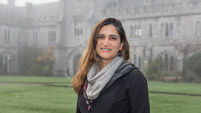
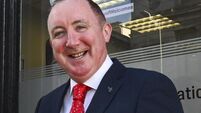
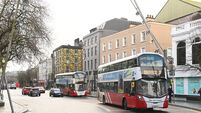
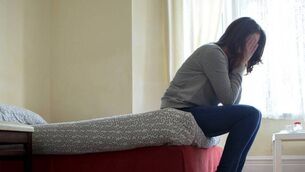


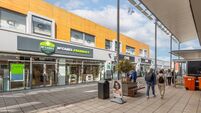
 App?
App?


